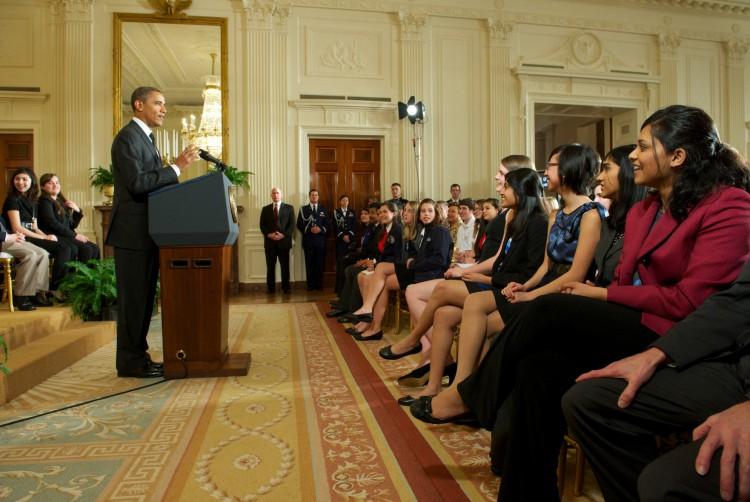
By ELISE RIO
Staff Writer
According to its website, the Orange County Science and Engineering Fair (OCSEF) has promoted science and engineering in the area since 1955. OCSEF is a nonprofit educational organization with the mission to educate, guide and motivate students to engage in project based-learning in all science, technology, engineering and mathematics (STEM) fields.
Most of us probably remember the mandatory science fair project we were forced to complete in sixth grade, regardless of our interest in science, our passion for our project or our interest in becoming competitive science fair participants. For many, it was either an absolute drag or a sort of mini-revelation of what it was like to develop an idea completely from scratch. I personally remember coming up with a project that I became absolutely passionate about as a sixth grader, even though looking back, it seems rather boring and simplistic. However, whether it was someone like me who enjoyed the experience or someone who felt the exact opposite, science fair was all about the process. That was what our teachers emphasized: the process of coming up with the idea and the individuality and creativity involved in the project. In fact, OCSEF is commendable in that it inspires so many young children to see what being a researcher is like and to convert a hypothesis into a practical passion.
However, the science fair process changes in high school. The increased levels of competition kill the individuality and creativity of the projects. Science fair is no longer about the process, it becomes about the results. When I went to compete at the district science fair in February, I was surprised to find that every single eleventh and twelfth grade project had been completed in a lab. There is nothing inherently wrong with working in a lab because having that opportunity is great. The mentorship from the professors and researchers drives participants’ interest in science and the projects gain more depth and complexity. However, the creativity is no longer as apparent. After all, it seems highly unlikely that a high school student, even one with straight A’s and high test scores, can come up with the cure to cancer in a University of California, Irvine (UCI) lab all alone. It is unlikely that a high school student thought of deleting the expression of a gene or modifying the extracellular matrix to stimulate apoptosis on his or her own. I work in a lab and I conduct procedures under the direction of a UCI researcher, but I would not have thought to transform my experience in the lab into my science fair project. If I had turned my lab work into my science fair project, the idea would have been unoriginal. I would be using someone else’s procedures, and I would be incapable of drawing conclusions on my own.
The problem does not come from the students themselves but from OCSEF, the organization that appears to give the prizes to the projects with the longest, most difficult sounding names and, therefore, to the students working in labs. The same OCSEF that should encourage individuality and creativity in students seems to become a place for students to display the work of the researchers they work with without encouraging students to come up with projects on their own.
Problems with the OCSEF Science Fair
March 9, 2015
1
0
Tags:
Donate to Sword & Shield
$180
$1000
Contributed
Our Goal
Your donation will support the student journalists of University High School. Your contribution will allow us to purchase equipment and cover our annual website hosting costs.
More to Discover















Jiwoo Rhee • Mar 21, 2019 at 8:46 pm
100% I agreed today. My child was disappointed by her work in oc science fair. She asked me ” Can you spend money over 1000$ for my project next year?” Most projects are built in lab at Irvine university and Irvine students are advantageous . Some parents working in lab help their children. For what? Why can’t judges judge individual work they really want professional work ?